ATTENTION USA Prop Traders: Is Prop Trading Legal? 3 Answers You Need To Know
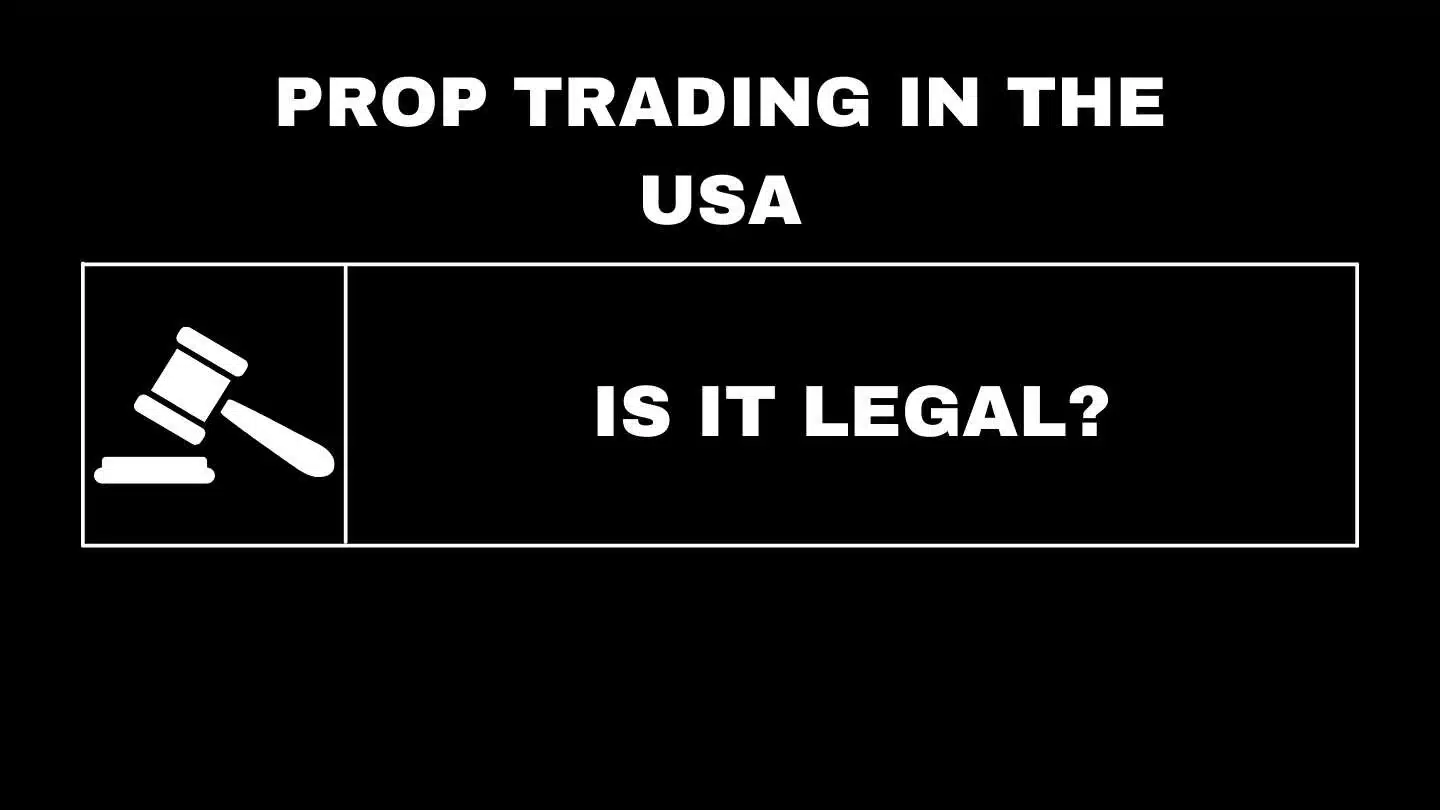
- Unlock the Secrets of Prop Firm Trading
- Gain Expert Insights from our prop firm's top traders
- Take Control of Your Finances Today!
A very common question we frequently come across from traders goes something like this, “I’m from the USA, and I want to become a prop trader. Is prop trading legal for US-based customers?“
The answer is absolutely, positively . . . YES! But . . . don’t go anywhere just yet. You may want to know some of the risks and legal ramifications regarding prop trading. You’re going to want to stick around to make sure that you don’t miss anything important.
Before we begin, thank you for visiting Trading Strategy Guides. If this is your first time, welcome. If you are looking for anything specific about trading, or just want to browse our articles, feel free to check out our TSG blog page.
If you are a new trader you may want to read our beginner’s guide for understanding financial markets.
Moving on, let’s get into, “Is Prop Trading Legal” for USA traders!
Get Our Free Swing Trading Report Today!
- Entry Points
- Exit Points
- Risk Managament
- Time Saving Tips
Table of Contents
Intro — Is Prop Trading Legal?
You are currently reading the second article in our prop trading system series.
In the first prop trading article, we taught you the necessary steps required to become a prop trader, breaking everything down in simple bite-sized pieces to teach you everything we could think of on your journey to become a prop trader.
In the second article, we broke down the barrier to entry by showing you how to become a prop trader. It’s a comprehensive guide teaching the basics, discipline, and research required to launch your prop trading career.
You’re currently reading the third article int the series which answers the question “Is prop trading legal?”, primarily for US citizens because this can be confusing because of financial regulations in the USA.
Article 4 Explains how to easily pass a prop firm trading test. We give you the tools you need to pass the test including, strategy, discipline, and risk management techniques that you’ll need while taking the prop firm trading test.
Our next article, will give you a detailed list of the best prop firms to trade with. We have scoured the internet to find you the best prop firms to trade with in 2023!
Please leave a comment after reading this article if you have any questions or feel there are any additional topics you want us to cover.
Now let’s begin learning is prop trading legal in the USA!
Is Prop Trading Legal?
Are you new to prop trading? Don’t worry, it is just a fancy way of describing a business that trades to make money. Prop firms use their capital for trading, hiring successful traders as employees to help them make money in financial markets.
Prop trading is nothing new, but it has been gaining popularity in recent years, because of the potential of a flexible work schedule along with being highly lucrative. That’s why it’s important to understand the legalities behind prop trading.
While it is not illegal for Americans to become prop traders and join prop firms, it has some rules and regulations that you might want to be aware of.
The History of Prop Trading Regulations in the USA
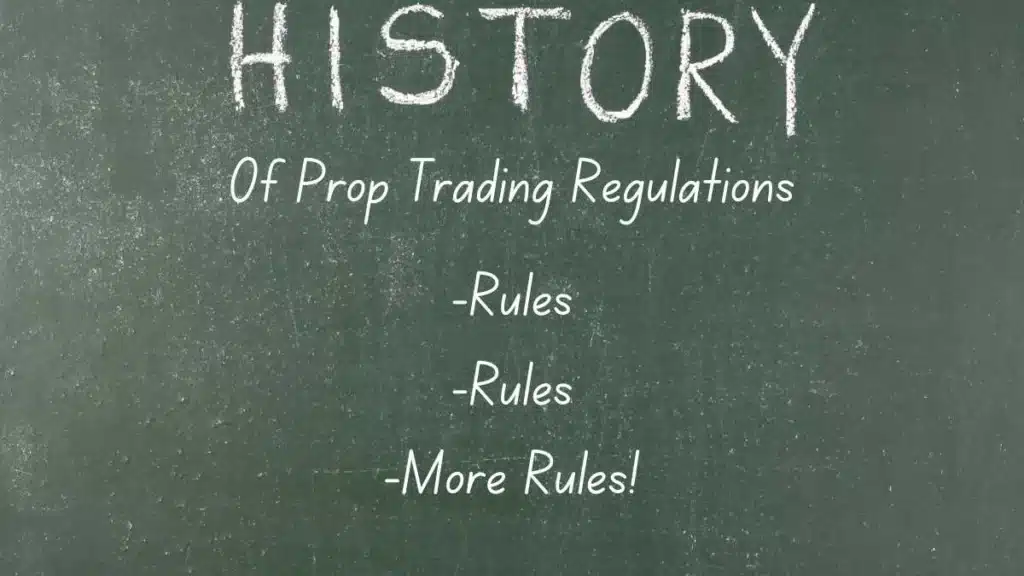
The earliest regulation related to prop trading is the Securities Exchange Act of 1934. The law governs the trading of securities i.e. stocks, bonds, and debt [1].
The Exchange Act was created to regulate the securities markets and prevent fraudulent and manipulative activities. This prompted the creation of the SEC (Securities and Exchange Commission).
In the 80s and 90s, banks were eager to generate additional revenue by trading the in the stock market to take advantage of market inefficiencies. Due to the lucrative potential, prop trading was on the rise. However, prop trading was also associated with significant risks and potential conflicts of interest.
In response to these concerns, regulators began to impose additional regulations on prop trading. In 1994, the Federal Reserve issued a statement on the management of risks associated with trading activities. This statement encouraged banks to establish policies and procedures to manage and control the risks associated with trading activities, including prop trading.
Because of the disaster caused by the 2008 financial crisis, regulators decided to scrutinize proprietary traders on a greater level. The Dodd-Frank Wall Street Reform and Consumer Protection Act was established which resulted in the Volcker Rule in 2010, the regulation that affects prop trading the most.
The Volcker Rule
The Volcker Rule prohibits banks from engaging in proprietary trading with their funds. Banks must also refrain from owning or investing in hedge funds or private equity funds. This prevents economic destruction based on potentially poor trading decisions of banks.
The big thing to note here is that the Volcker Rule doesn’t really affect prop traders as long as they are not affiliated with a bank. If you are trying to get a job as a prop trader with a bank then you probably will need to do a little more research. Other than that it’s just good to know that the rule exists.
Additional Regulatory Bodies
Apart from the SEC and the Dodd-Frank Act, several other regulatory bodies impose regulations on prop trading firms in the US.
Commodity Futures Trading Commission (CFTC)
The Commodity Futures Trading Commission (CFTC) is responsible for regulating the trading of futures and options contracts in the US. Prop trading firms that trade futures or options contracts are required to register with the CFTC and comply with its regulations [2].
Financial Industry Regulatory Authority (FINRA)
FINRA is responsible for regulating the securities industry in the US, and it sets rules and standards for securities firms and brokers. Prop trading firms that trade securities are required to register with FINRA and comply with its rules and regulations [3].
State
In addition to federal regulatory bodies, prop trading firms may also be subject to state regulations. State regulatory bodies may impose their own regulations on financial services and trading activities, and these regulations may vary from state to state.
The regulations that prop trading firms are subject to may also vary depending on the type of financial instruments being traded. For example, firms that trade options contracts may be subject to different regulations than firms that trade stocks or bonds.
The size and nature of the prop trading firm may also play a role in the regulations that apply. Larger firms may be subject to more stringent regulations, while smaller firms may have fewer regulatory requirements.
Overall, prop trading firms must be aware of the regulatory landscape and ensure that they comply with all applicable regulations. Failure to comply with regulations can result in penalties and legal consequences.
Do Prop Traders Need to be Licensed?

In general, prop traders in the United States are not required to hold any specific license or certification to engage in prop trading activities. There may be certain licensing and registration requirements depending on the type of securities they are trading and the size and nature of the trading firm.
For example, traders who engage in options trading may need to register with the Options Clearing Corporation (OCC) and obtain certain certifications or licenses to trade options. Additionally, traders who handle customer accounts or provide investment advice may need to hold certain licenses, such as the Series 7 and Series 63 licenses issued by FINRA.
Prop trading firms themselves may also be subject to licensing and registration requirements depending on the nature of their business. For example, firms that engage in commodity futures trading may need to register with the CFTC and become members of the National Futures Association (NFA). Similarly, firms that offer investment advisory services may need to register with the SEC or state regulatory bodies and become members of the Investment Adviser Association (IAA).
Prop traders and trading firms will need to comply with various other laws, related to securities trading, such as anti-money laundering (AML) regulations, insider trading laws, and market manipulation rules. It is essential for all traders (not just prop traders) to understand these regulations and ensure they are operating within the legal framework to avoid potential consequences.
Prop traders may not need to hold specific licenses or certifications to engage in prop trading activities. But, they educate themselves on the various regulatory requirements that apply to their trading activities and the nature of their business.
Are Derivatives Legal For Prop Trading in the USA?
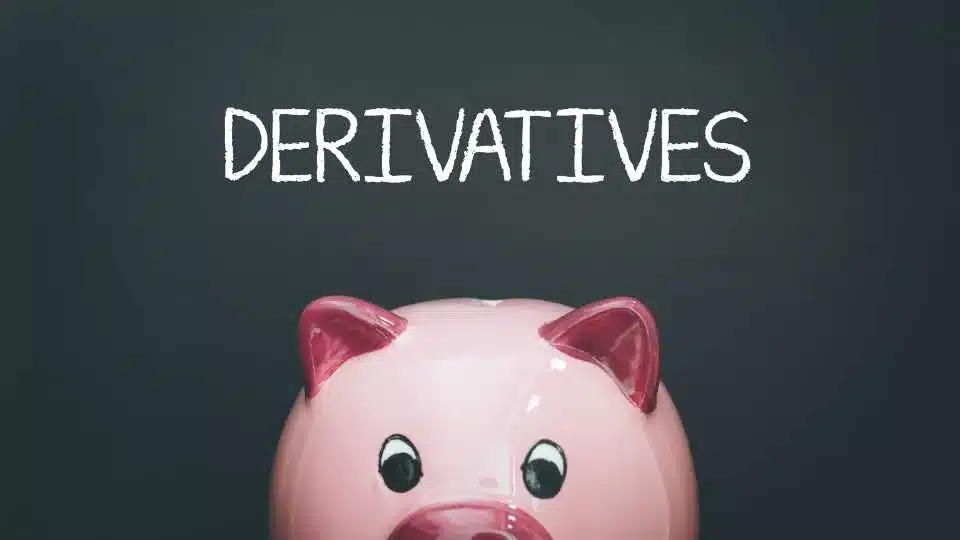
CFD (Contract For Difference) trading is legal in the USA, but it is regulated and restricted in some ways. CFDs are considered to be over-the-counter (OTC) derivatives, which means they are not traded on an exchange.
The CFTC regulates OTC derivatives, including CFDs, in the United States[2].
CFD trading is not available for US citizens through US-based brokers due to CFTC regulations. However, US residents can still trade CFDs through offshore brokers that accept clients from the United States.
It’s important to note that these offshore brokers may not be regulated by the CFTC or other US regulatory bodies, so traders should exercise caution and perform due diligence before choosing a broker.
Additionally, individual states may have their own regulations regarding CFD trading. Traders should do their due diligence in looking up the regulations of their home state.
Overall, while CFD trading is legal in the USA, traders need to be aware of the regulatory restrictions and should only trade with reputable brokers that have a strong track record.
Conclusion — Is Prop Trading Legal in the USA?
The Bottom Line is that prop trading is legal for US traders, but you always need to make sure you understand the risks and regulations surrounding the type of prop trading that you want to do.
For the most part, as a prop trader, you won’t need to worry too much about the regulations, and if you join a firm that does require regulations and licensing, they will most likely provide training on the relevant topics.
If you are attempting to start your own prop firm, then you will need to do much more comprehensive research on the above topics to ensure that you’re complying with all the rules.
This article is meant to be a general guide to briefly answer the question is prop trading legal in the USA. Remember that trading always carries risk and to properly research all the regulations before engaging in any trading activity.
Up Next . . .
Learn how to easily Pass a prop firm trading test.
Further Reading — Is Prop Trading Legal
If you like this article on Is Prop Trading Legal In the USA, then you definitely need to check out the following:
The Ultimate Guide to Prop Trading — Lay the foundation for your understanding of prop trading by reading this comprehensive tutorial that will cover just about everything you would want to know about prop trading.
How to Become a Prop Trader — Since you just read this article, we know you are interested in how the whole “becoming a prop trader” thing works. This guide will tell you what you need to know.
How to Pass a Prop Firm Trading Test — Do you hate tests? So do we. Luckily, we have a great guide that will help you pass your prop firm exam.
What is Trading — Did you skip ahead a bit? No worries, this ultimate beginner’s guide to trading the financial markets will get you up to speed in no time.
What is the Best Trading Strategy — Maybe you already know everything above, and you are just looking for an awesome trading strategy for your prop trading account. Look no further, we’ve got you covered!
Global Prop Trader — If you are ready to get started with prop trading, then you can join the best prop trading firm in the business.
Frequently Asked Question
Do prop traders need a license?
In general, the straight answer is no. Prop traders in the United States do not need a specific license to engage in prop trading. There are always exceptions to the rule, and there could be requirements based on the trader’s location, the type of instruments they are trading, as well as the size and type of firm. Always do your research before you begin prop trading.
Is prop trading legal in the United States?
The short answer is yes, US-based traders can become prop traders. Please read the above article for more specific details.
What types of financial instruments can be traded through prop trading in the USA?
Prop trading firms in the USA can trade a wide range of financial instruments, including stocks, bonds, commodities, and derivatives such as options and futures.
Are there any restrictions on who can participate in prop trading in the USA?
Prop trading firms in the USA may have certain requirements for traders, such as a minimum level of experience or specific educational background. However, there are no specific legal restrictions on who can participate in prop trading.
Sources Cited
1. Wikipedia – Securities Exchange Act of 1934
2. Investopedia – CFTC Overview
- Unlock the Secrets of Prop Firm Trading
- Gain Expert Insights from our prop firm's top traders
- Take Control of Your Finances Today!



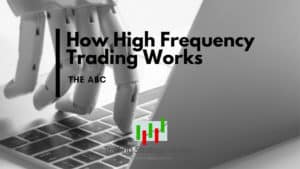


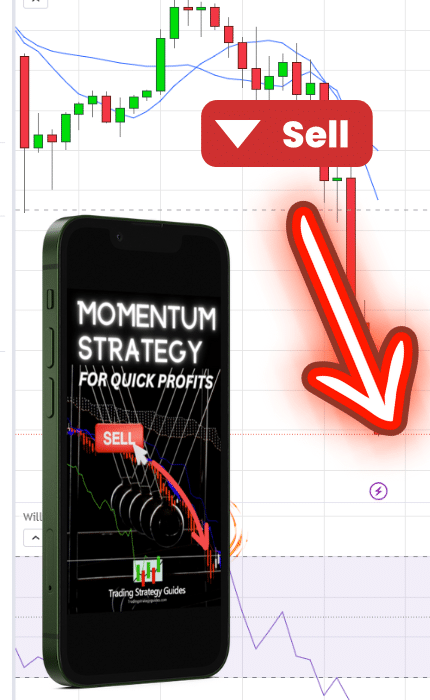

Very interesting info!Perfect just what I was searching for!